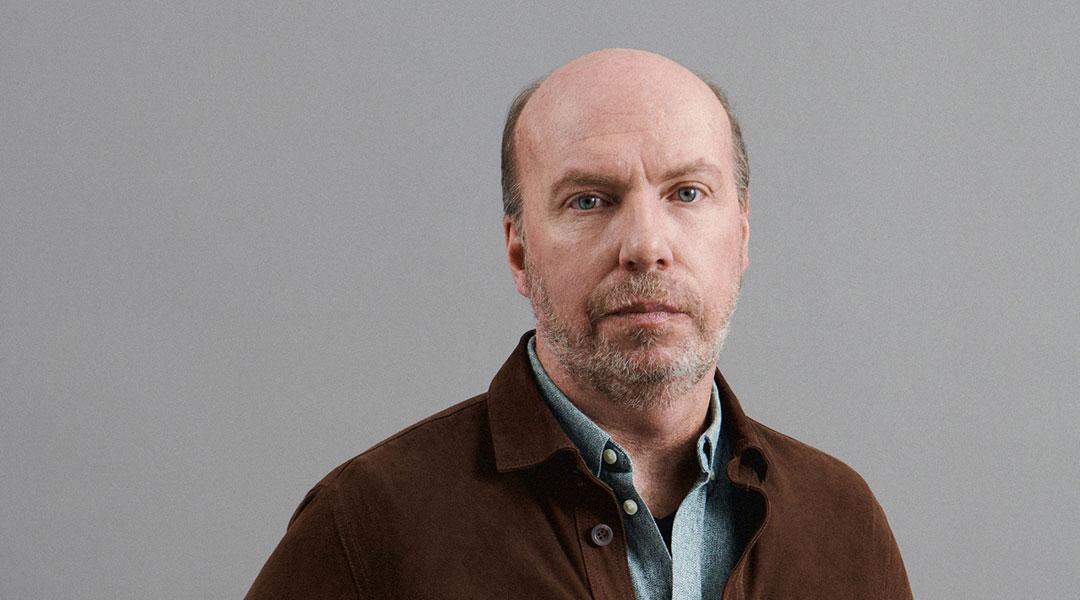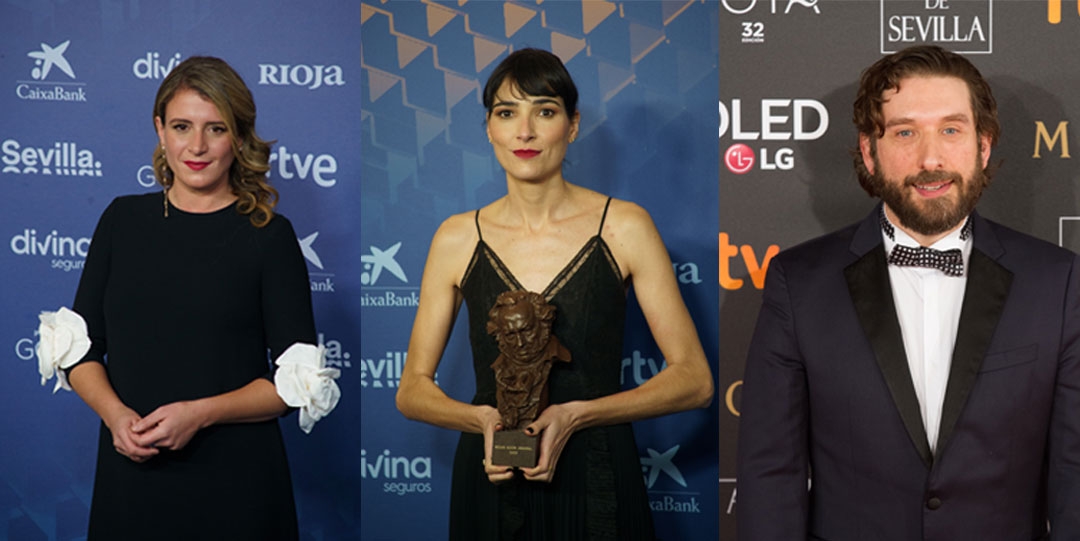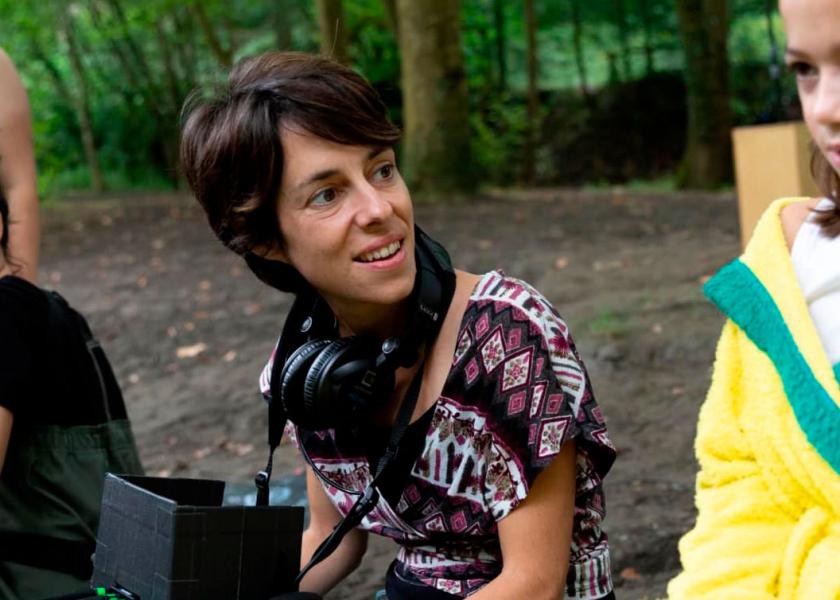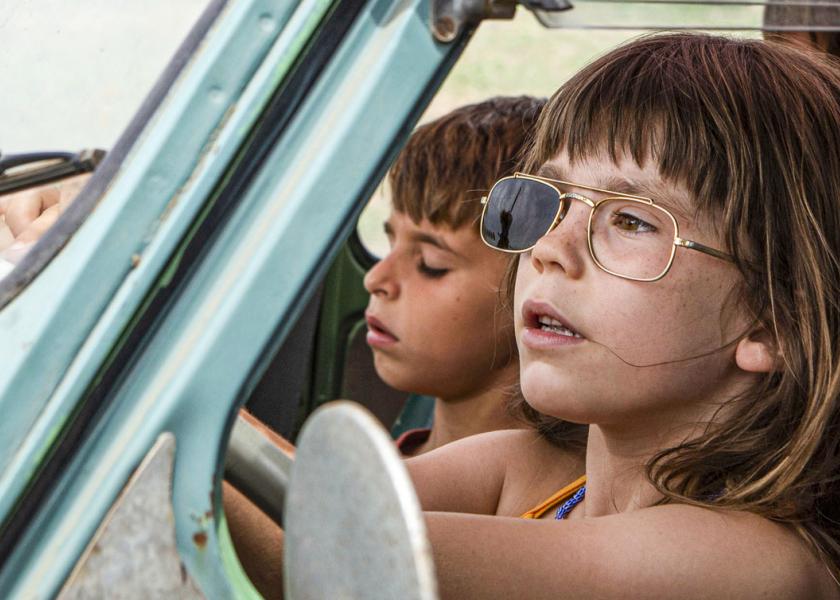Spanish screenwriters
Storytellers

Without screenwriters, there would be no stories. And without stories, the world would be a dull place. In Spain, their role is currently played by many talented people. Learn about the successors of the great Rafael Azcona, the most well-loved screenwriter in Spanish cinema—the author of ‘The Executioner,’ ‘The National Shotgun’ or ‘Belle Époque,’ among others—, and start to give them the recognition they deserve.
In the world of cinema, the spotlight always shines on the stars, the actors and actresses who feature in films. Occasionally, some directors also step into the limelight. Screenwriters, those who put together the stories that the first bring to life and the second translate into images, almost always remain in the shadows. Screenwriter Eduard Sola, winner of the Goya Award for Best Original Screenplay at the latest edition of the Goya Awards for A House on Fire, shared his surprise at this invisibility in an interview with Talento a bordo: “Screenwriters do not demand more awareness because we want to be famous, but rather because we need to value the human being behind each story. It’s surreal to leave the cinema without knowing who has written that story we enjoyed so much.” In response to this, we’ll share the names of some of the most well-known screenwriters in today’s Spanish film industry.
Jorge Guerricaechevarría
Jorge Guerricaechevarría is intricately connected to the director Álex de la Iglesia. A collaboration that started in 1991 with the short Mirindas asesinas and that lasts until today with famous films like The Day of the Beast (1995), Common Wealth (2000) or Witching & Bitching (2013), among others. His hallmark: very dark comedy, sharp social criticism and touches of fantasy. In 2006, with The Kovak Box, Jorge crossed paths with his other favourite director: Daniel Monzón. Together, they have signed box-office thrillers like Cell 211 (2009) or Outlaws (2021), which won them both Goya Awards for Best Adapted Screenplay. He has also worked with filmmakers like Pedro Almodóvar, Paco Plaza or Daniel Calparsoro.
Isabel Peña
The duo made up of Isabel Peña and Rodrigo Sorogoyen has turned into a hallmark of Spanish cinema. Since their first collaboration, Stockholm (2013), they haven’t stopped growing artistically with acclaimed films such as May God Save Us (2016), The Realm (2018) or The Beasts (2022), which secured their place on the national and international scene, with a Goya Award for Best Film and the French César Award for Best Foreign Film, respectively. They are currently working on The Beloved (2026), starring Javier Bardem and Victoria Luengo. In 2020, they also presented their first miniseries, the superb Riot Police. Her ability to maintain narrative tension may be the distinguishing trait of one of the most influential screenwriters in Spain.
Mateo Gil
“My name is Angela. They’re going to kill me.” With these words, said by actress Ana Torrent in Thesis, Alejandro Amenábar and Mateo Gil revolutionized Spanish cinema. At the tender age of 24, the horrifying story they created took the Goya Awards by storm, winning seven awards, including for Best Film and Best Original Screenplay. They didn’t stop there and, as if touched by a magic wand, one year later they released Open Your Eyes. Next, Mateo took the leap to directing with one of the biggest box-office hits of 1999: Nobody Knows Anybody. In 2004, Alejandro and Mateo worked together again on The Sea Inside and their talent took them across the pond to receive the Academy Award for Best International Feature Film. Their last collaboration together was Agora (2008).
Clara Roquet
One of the female screenwriters who is setting the pace of modern Spanish cinema. In the last decade, she has written a series of screenplays full of lyricism and sensibility, like 10,000 Km (2014), Petra (2018), Creatura (2023) or The Red Virgin (2024) alongside directors like Carlos Marques-Marcet, Jaime Rosales, Elena Martín or Paula Ortiz. Also, in 2021 she tried her hand at filming with Libertad, which won her the Goya Award for Best New Director alongside the nomination for Best Original Screenplay. Last year, she made her TV debut with Past Lies (2024), followed by Galgos (2024). Now she’s waiting for the release of the TV adaptation of Eartheater, one of the most acclaimed novels from the new generation of Latin American female writers.
Eduard Sola
This list wouldn’t be complete without the latest winner of the Goya Award for Best Original Screenplay, Eduard Sola. The screenplay for A House on Fire became one of the most praised in recent years, winning a Gaudí, a Feroz and the aforementioned Goya Award, and narrowly missing the Platino Award. Trained at ESCAC, the Cinema and Audiovisual School of Catalonia, which he praises for its capacity to create “an ecosystem where teams are built”, he strives to change the image we have of screenwriters: “Thinking that we are those loners in a dressing gown, with a whisky and cigar in hand, is a mistake because I don’t wear a dressing gown, drink whisky or smoke cigars.” In 2024, alongside Alauda Ruiz de Azúa and Júlia de Paz, he wrote one of the most acclaimed series in recent years: Querer.
Isa Campo
Filmmaker Isaki Lacuesta is not actually called Isaki, he’s called Iñaki. Where does this name come from, then? It pays homage to Isa Campo, his creative and romantic partner. Together, they have co-signed the scripts of films that move away from conventional narratives, like The Double Steps (2011)—winner of the Concha de Oro Award at the San Sebastián Festival—, The Next Skin (2016)—which they co-directed—, Between Two Waters (2018)—winner of the Concha de Oro Award at the San Sebastián Festival— and One Year, One Night (2022)—Goya Award for Best Adapted Screenplay—. In 2021, she started collaborating with Icíar Bollaín, with whom she has co-written Maixabel (2021) and I’m Nevenka (2024). In 2023, she received the Gold Medal of Merit in the Fine Arts.

Clara Roquet, Isabel Peña and Sergio G. Sánchez are some of the most well-renowned Spanish screenwriters today. © Pedro J. Pacheco (left and centre) | © Carlos Delgado (right) | Source: Wikimedia Commons
Sergio G. Sánchez
Sergio G. Sánchez had beginner’s luck. The screenplay of The Orphanage (2007), which was also the directorial debut of J.A. Bayona, won the Goya Award for Best Original Screenplay. A horror film that captured the audience and was a hit both in Spain and around the world, grossing almost 80 million dollars. Five years later, he repeated his success with The Impossible (2012), inspired by the experience of Spaniard María Belón during the tsunami that destroyed South-East Asia in 2004. At the 2013 Goya Awards, he went down in history for being nominated both in the Best Original Screenplay category (The Impossible) and in the Best Adapted Screenplay category (The End). He later took the leap to directing with Marrowbone (2017), a psychological horror mystery drama with hints at the supernatural.
Coral Cruz
The films The Punishment (2022) and They Will Be Dust (2024) feature two of the most daring and original screenplays in recent years. The first is a complex, powerful and brave reflection on motherhood filmed in one take. The second is a bold musical defending the right to decide the end of our lives. What do they have in common? Coral Cruz’s role as screenwriter. Looking back, her career also includes films like Dying (2017), Uncertain Glory (2017), The Days to Come (2019) and One for All (2020), as well as the series Hierro (2019). She also works as a script supervisor and teacher, and is the author of the book Imágenes narradas. Cómo hacer visible lo invisible en un guión de cine, about how to turn stories into images.
Other names worth mentioning are Fran Araújo, Rafael Cobos, Virginia Yagüe, Pablo Remón, Ángeles González-Sinde, Diego San José, Albert Espinosa, Fernando Navarro, Ignacio del Moral, Jorge Sánchez-Cabezudo or Javier Gullón, among others. And if we’re talking about screenwriters, we cannot forget about the role of directors who come up with their own stories—which is quite common in the Spanish film industry—. In this sense, we must mention veterans like Pedro Almodóvar, Isabel Coixet, Icíar Bollaín, Alejandro Amenábar, Alex de la Iglesia, Fernando Trueba, Gracia Querejeta, Montxo Armendáriz, Pablo Berger, Cesc Gay, Agustín Díaz Yanes, Fernando León de Aranoa, Julio Medem, David Trueba, Jaime Rosales, Manuel Martín Cuenca, Benito Zambrano or Víctor Erice. Among the younger director-screenwriters, a generation of women stands out for receiving applause from both critics and the audience: Carla Simón, Pilar Palomero, Alauda Ruiz de Azúa, Estibaliz Urresola or Paula Ortiz, among others. Follow them and don’t forget their names!




